|
It is currently 19 Apr 2024, 11:08 |

Customized
for You
Track
Your Progress
Practice
Pays
| FROM Tuck Admissions Blog: So you’re on the waitlist. Now what? |
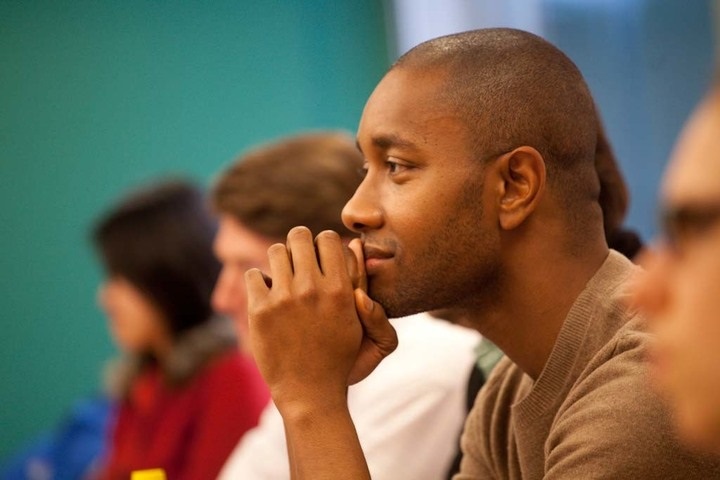 We know “waitlist” wasn't the decision you were hoping for last Thursday. But rather than seeing this in a completely negative light, keep in mind that being waitlisted indicates there were many strengths in your application. Tuck receives a lot applications and the pool is very competitive. Also remember that it’s not over yet! Almost every year, we admit people from the waitlist to join the first-year class in August. To give yourself the best chance of being one of those people, there are things you can do while you’re waiting to prepare yourself for business school. First, take a deep breath. Do something healthy for yourself. Spend time with family and friends, go for a run, or whatever you do to decompress. Good decisions about future paths are rarely made when you’re under stress or feel anxious. Release some of those anxieties and put your efforts into building a wise strategy for moving forward. Second, follow the instructions. Your decision letter lets you know what you need to do next. You’ll need to decide whether or not you want to remain on the waitlist. If you choose to remain on the waitlist, an Admissions Officer will get in touch (typically early spring) to let you know if there are any steps you can take to enhance your application. In the meantime, however, this is a good time to look back on your application and decide for yourself what your strengths and weaknesses are. An honest assessment of what you could improve is a great opportunity for you to come up with a game plan. Maybe you think you could score higher on your GMAT, or you realize your goals or your rationale for your MBA weren’t clear. That insight can help you take proactive steps now, without having to wait for feedback from us. Third, trust the process. We know being in limbo is challenging. We work hard to make the waitlist process as informative and clear as possible. If we need something from you, we will let you know. Update us with important information such as promotions or updated test scores. There’s no need to make surprise visits to campus or stay in constant contact. Keep in mind how you handle yourself on the waitlist also gives us an idea of how you will handle yourself as a student. You can help your candidacy by maintaining your professionalism and checking in every once in a while. For those currently on Tuck's waitlist, this email address is the best way to provide updates or ask questions. As you look forward to receiving feedback, we thank you for your patience! |
| FROM Tuck Admissions Blog: Top 5 Blog Posts of 2015 |
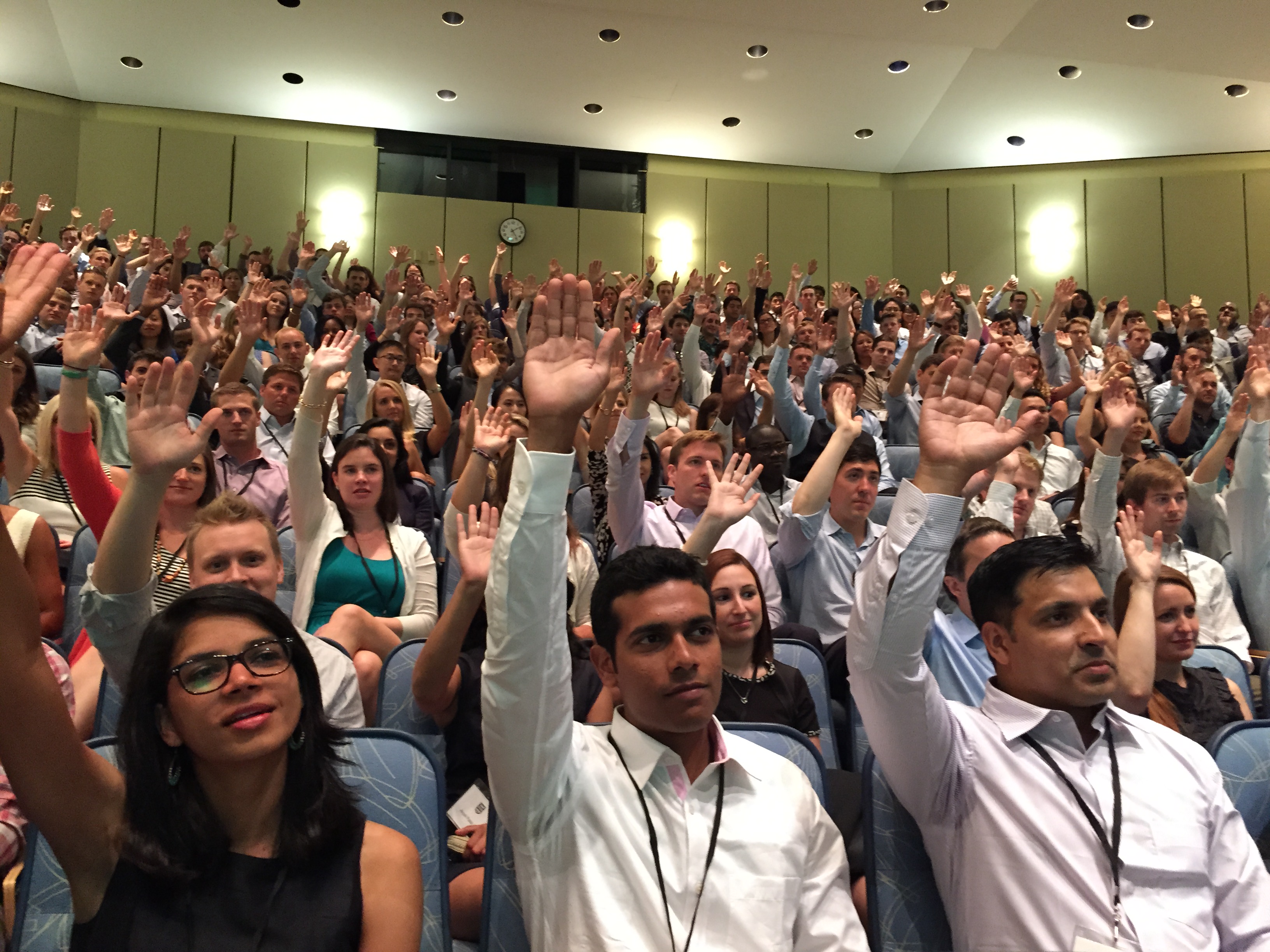 With a new dean, record-breaking career stats for the Class of 2015, the official launch of TuckGO, and welcoming the impressive Class of 2017, 2015 has been a great year! Here's a look back at some of our top blog posts of the year. 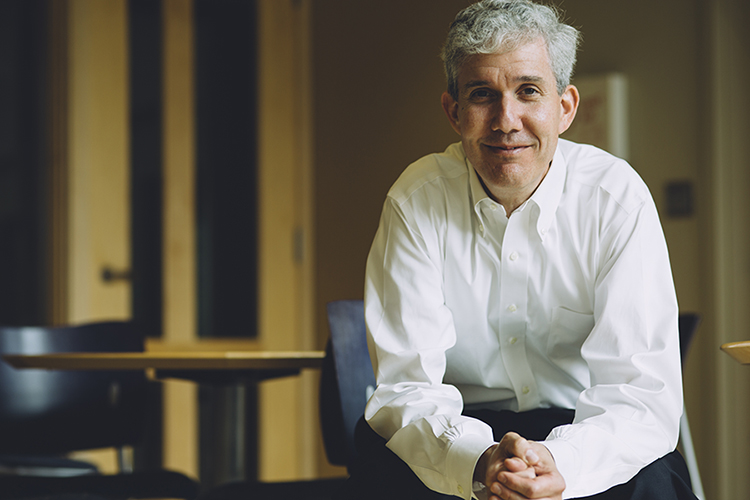 #1. Welcoming the Class of 2017: A Letter from Dean Matthew Slaughter #1. Welcoming the Class of 2017: A Letter from Dean Matthew Slaughter"The 2017 class is incredibly diverse, accomplished, and poised to achieve great things both throughout their two years here and in the many years beyond."  #2. From Hanover to Hollywood: Musings on Life, Learning, and Love #2. From Hanover to Hollywood: Musings on Life, Learning, and LoveJosh Hamilton T’15 moved to Hanover filled with a little bit of nervousness, a dose of confidence, and a great deal of hope. #3. Can you start a business in the woods? 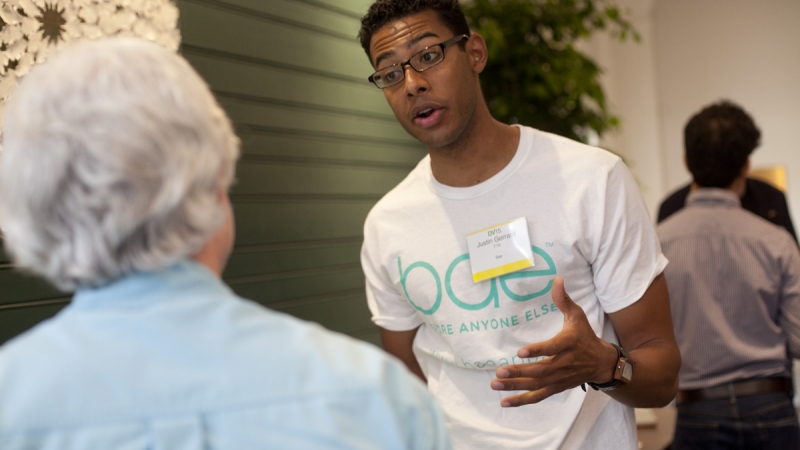 Justin Gerrard T'16 is the co-founder of Bae, a mobile matchmaking app curated for people of color. #4. A Summer Beyond Expectations  Over the summer, Henrique Lyra Bahr T'16 interned at Cargill, America's largest private company. #5. Interview with Director of Admissions Dawna Clarke  During an interview with Accepted.com, Admissions Director Dawna Clarke provides candid insight into the MBA program and the admissions process at Tuck. |





| FROM Tuck Admissions Blog: Tuck Spotlight: 10 Questions with Kristiana Helmick T’98 |
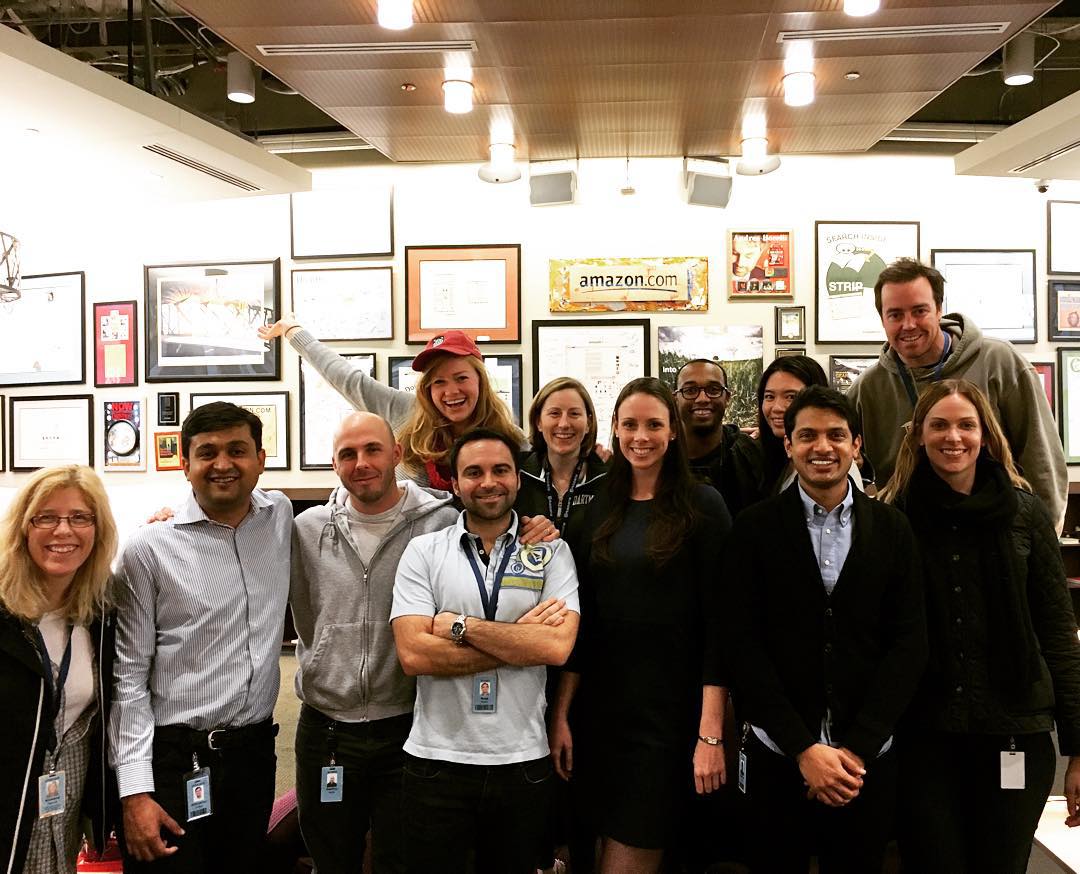 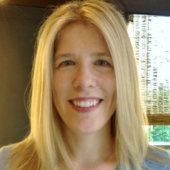 Kristiana Helmick T'98 is the general manager of the Pet Supplies category at Amazon. Tell me a little about yourself. I have worked at Amazon for seven years and am thrilled to work in technology, which blends very well with my early interest in media. At Amazon, I’ve worked on the media and devices teams, launching products like magazines on Kindle. My background pre-Amazon is in magazines—after graduating from Tuck, I worked for ten years at Time Inc., marketing some great brands like InStyle and People magazines. One of my first post-Tuck jobs was on the launch of Real Simple magazine, where I was able to put in action some of the core principles of marketing that I learned at Tuck. 1. What was the exact moment when you first felt like you were a part of Tuck’s community? I saw myself as part of Tuck’s community during my on-campus interview, before I completed my application. I had visited several other top schools, but it was at Tuck where I felt most like myself. I developed an immediate rapport with my seconrd-year tour guide as well as my interviewer, who both expressed genuine enthusiasm for the skills I would bring to the school. 2. Who had a profound impact on you during your time at Tuck and why? I had many strong professors who had an impact on me, including John Shank who taught life lessons during Cost Accounting, Steve Powell who inspired passion for Decision Science, and Paul Argenti who helped me bridge my pre-Tuck background in journalism to the business principles I was learning. I also consider my first-year study group members lifelong friends. 3. What’s your favorite Tuck/Dartmouth/Hanover/Upper Valley event and why? 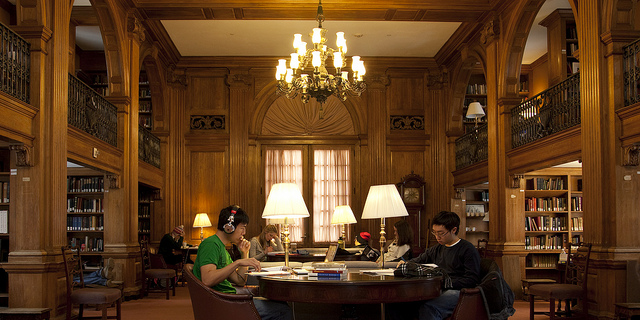 Hands down, my favorite event is the daily tea served at Sanborn, the library for Dartmouth’s English Department, which is down the road from Tuck. An endowment keeps the price of the tea to ten cents. It is an outstanding place to study or to get a literature fix in the middle of your day. The runner up is Winter Carnival. 4. Fill in the blank: Every visitor to the Upper Valley needs to______. Visit Dan and Whit’s, the general store across the road in Norwich, Vt. Their slogan is, “If we don’t have it, you don’t need it!” 5. What’s a challenge that you’re currently working on solving? Or perhaps a world problem you’d like to see solved? At Amazon we are building many new businesses and are often faced with problems that no one knows the answer to because we’re inventing as we go. The challenge is to use good judgment in these situations that can stand the test of time, when data can only get you so far. My business is relatively young at Amazon, so I think a lot about how to build a business that we can be proud of not just today but also ten years from now. 6. What do you personally feel is the key to good leadership? It is crucial to listen, which is also extremely hard to do that when our own beliefs get in the way. Good leaders are able to create change because they listen in order to understand the issues at play in any given situation. 7. Outside of work, what do you like to do for fun? My husband and I live near Lake Washington in Seattle. We like going paddle boarding in the summer and throwing tennis balls into the lake for our dog, a Newfoundland mix named Pepper. He loves to swim after them in absolutely any weather. 8. What would your theme song be? “Country Roads” by John Denver. My dad is from West Virginia, so this one always goes in rotation when I am out running. 9. What’s the best piece of advice you can offer on getting ahead? Or, what’s the best piece of advice you’ve ever received? I find that many people wonder early in their careers how to build a network. It became easier for me once I heard this piece of advice: Every time you make a contact and hit it off, ask that person for names of two more contacts who can help you. Ask each of those people for two more names. Before too long you will have more than enough people to talk with. Then maintain your network for life. Email your contacts at least once a year to let them know how you are doing. They want to know. 10. What is one thing that people would be most surprised to learn about you? My career goal during college was to be a history professor, and I studied for a year in Vienna, Austria on a Fulbright Grant after graduation. Vienna remains one of my favorite cities in the world. Photo above: Tuck alumni who currently work for Amazon gather for a photo. Photo at right: Students study in Dartmouth's Sanborn Library, which is open to the public. Credit: Dartmouth College. |
| FROM Tuck Admissions Blog: 4 Tips to Nail the Admissions Interview |
 With the January Round applicant initiated interview deadline just a few weeks away (January 29, 2016), the Admissions hallway is buzzing once again. There are still some spots available, but in order to guarentee yourself an opportunity to tell your story, talk with current students, ask questions to Admissions, and generally experience life on campus, make sure you register soon. As you prepare for your your interview, here are a few tips to help you nail it.
Of course, if coming to Hanover before January 29 just isn't possible, the Admissions Committee might invite you to interview after an initial review of your application. For even more tips on interviewing at Tuck, check out this Tuck 360 post on “Interviewing Do’s and Don’ts” from Senior Associate Director Pat Harrison. Good luck! We look forward to meeting you soon. |

| FROM Tuck Admissions Blog: An MBA Safari: Interviewing Farmers in the Heart of Kenya |
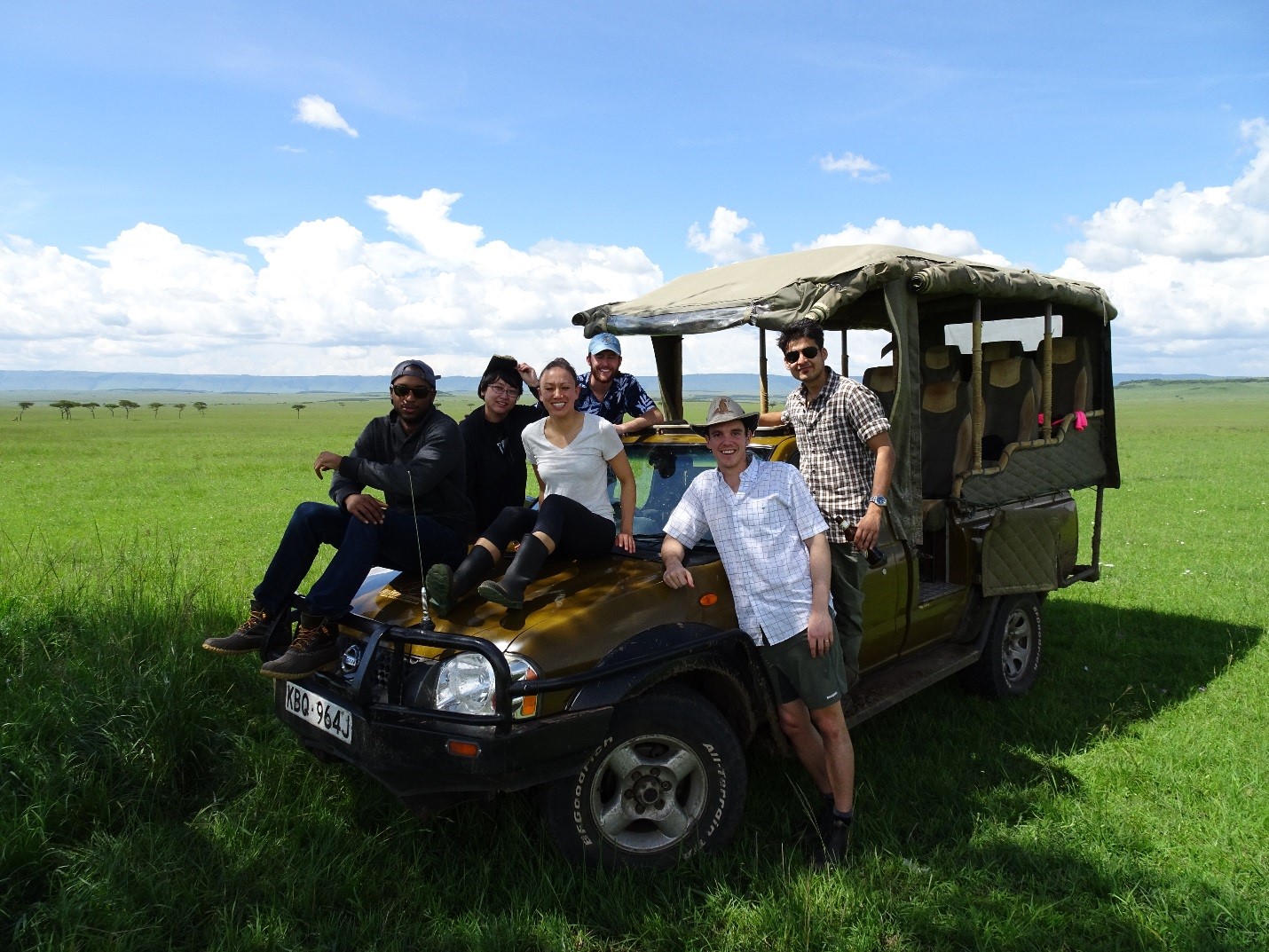 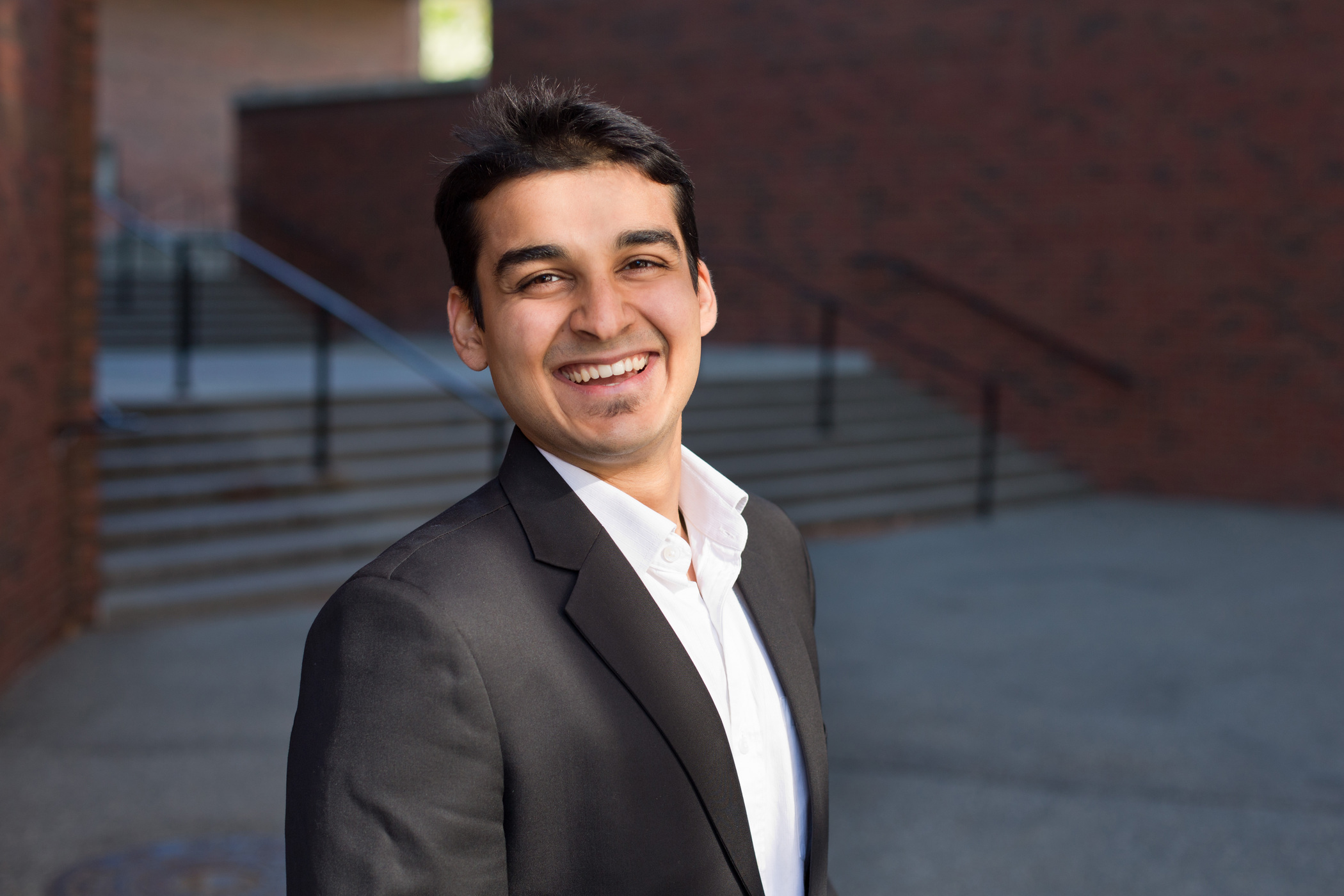 By Aditya Shah T'16 Aditya is a second-year student at Tuck from Mumbai, India. Prior to Tuck, he worked in his family’s tea manufacturing and exports business in India and Russia. He is deeply passionate about all things food, and post-Tuck will join General Mills Inc. in the Snacks Innovation Division. “Asante sana, rafiki,” thanked Jim, as we finished interviewing yet another farmer in a remote Kenyan county, in an accent so perfect, it was as if he’d been speaking Kiswahili his whole life. I had to remind myself that we had been in-country for barely two weeks- the enthusiasm and gusto of my team members had made the transition from New England to Africa seem seamless! Six second year Tuck students from varied backgrounds joined forces in early October 2015, to form the Kenya OnSite Global Consulting team. We had been staffed by a large American company that aimed to enter the Kenyan market. After three short weeks of client briefings, survey creation and pre-departure preparation in Hanover, we were off to Nairobi! Our main goal for the time in-country was to collect primary data by interviewing farmers, retailers, and other stakeholders across several counties in Kenya, with the intention of mining this data upon our return to Tuck. Thus started an epic, breathless journey—one in which we traversed seven counties across a thousand kilometers, interviewed over a hundred people and forged innumerable relationships 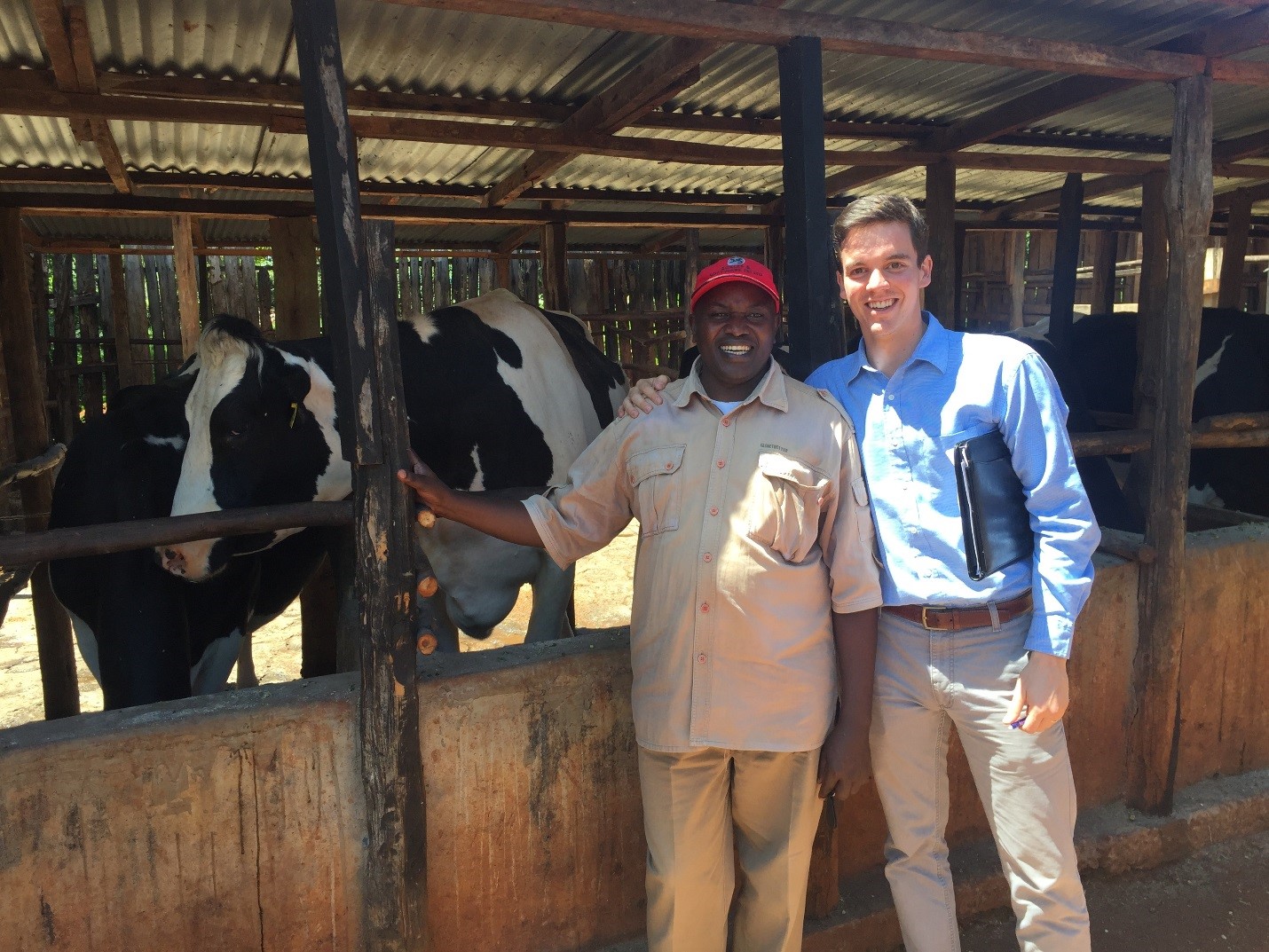 within the Kenyan farming community—all over a span of 18 days. Our typical day involved driving up to farms in small teams of two or three, armed with questionnaires and good cheer, to ask farmers about their habits. We quickly learned the merits of being flexible while collecting data in a place like Kenya—oftentimes appointments did not work out, or thirty-minute interviews stretched into three-hour-long “cultural experiences.” Aided and abetted by a wonderful faculty advisor and super-helpful client, we managed to comfortably exceed the interview targets we’d set for ourselves and even dig out key trends while still in-country. While the weekdays were hectic—with lots of walking around in dung, driving across dirt roads and recouping in the evenings to interpret data—we managed to take a weekend off and visit the Maasai Mara, recently voted the best safari destination in Africa by the World Travel Awards. Boy, did it live up to the hype! Our hotel jeep picked us up directly from the “runway” (best described as a strip of evenly-laid dirt) and we were off on the safari as soon as we landed. Over the course of a day and a half, we saw over 40 types of animals and birds, including the ever-elusive leopard, a full-grown black rhino with her calf, and three different lion prides. As we headed back to our respective homes to enjoy our Winter Break, I reflected on this once-in-a-lifetime journey. Two words stuck out: Empathy. Complacent in the promise of big-name jobs and three-figure salaries with a Tuck diploma, it’s possible for us MBAs to sometimes forget an entire world which exists, of farmers and laborers, of guides and drivers, many who may not have access to basic needs like electricity and water. Stepping into this world can help us all become more empathetic individuals. Team. I witnessed first-hand the infectious enthusiasm and unbridled power of a team of individuals united toward achieving a common goal. We disagreed passionately, laughed heartily and forged bonds which will hopefully last well beyond Tuck. I’ve had some amazing experiences while at Tuck, but this one easily ranks right up there with the best. Until our next safari then, “Kwaheri!” (Photo above: The Kenya Fun Time Express Team: (From L to R) Alex King, Janet Sun-Jieni, Sara Soo McGuigan, Jim Harig, Alex Kremer and Adi Shah; Photo at right: Alex Kremer in Imani Farms posing with Farmer Maina’s prize cow.) 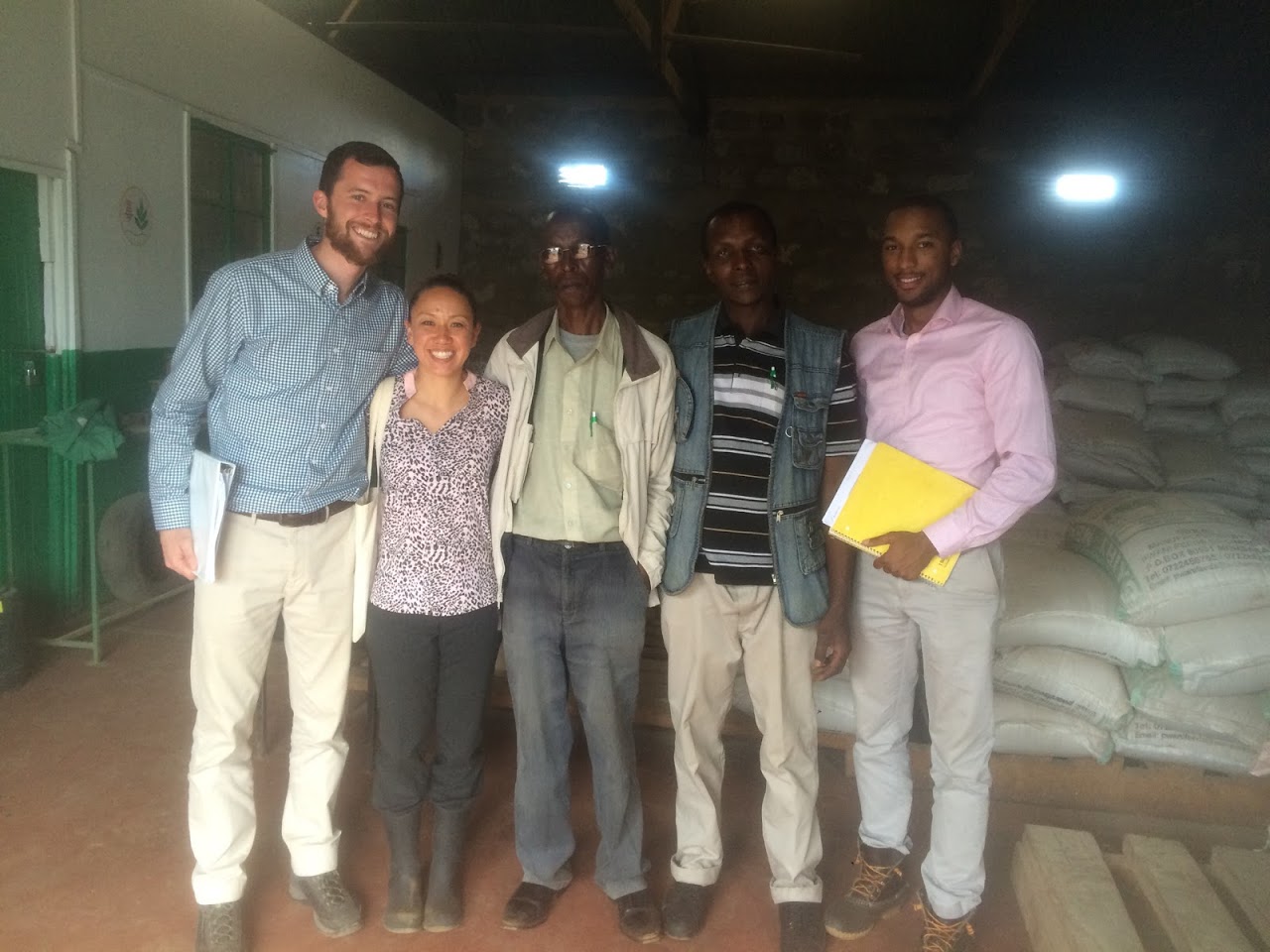 Farmer John and Farmer Patrick striking a pose after a hard afternoon of interviews with T'16s Jim Harig, Sara Soo McGuigan, and Alex King. 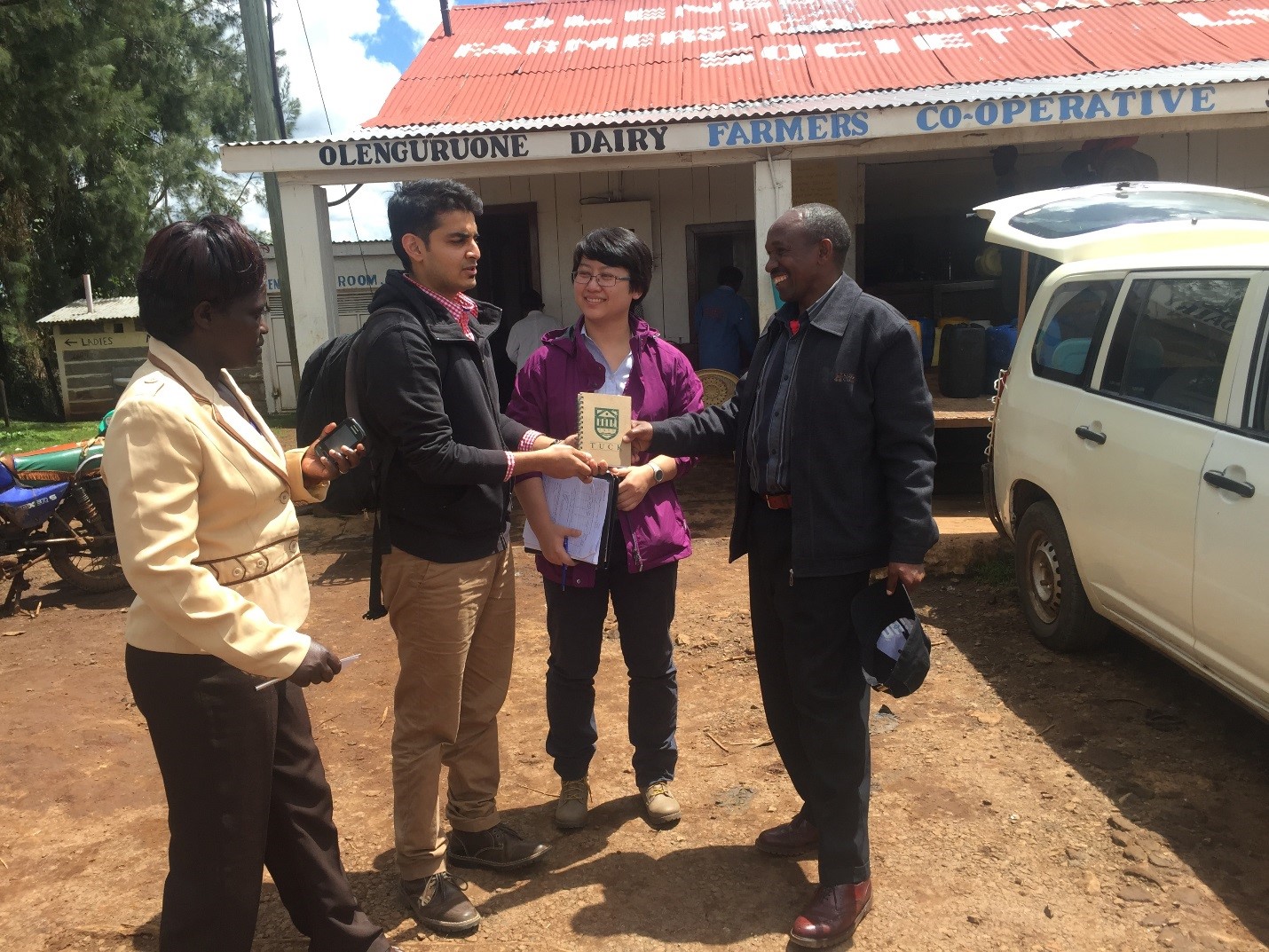 T'16s Adi Shah and Janet Sun-Jieni sharing some Tuck swag with Olenguruone Dairy Co-operative heads, Joseph and Emily. |

| FROM Tuck Admissions Blog: CDO Weighs In: Non-Traditional Career Paths and Career Switches |
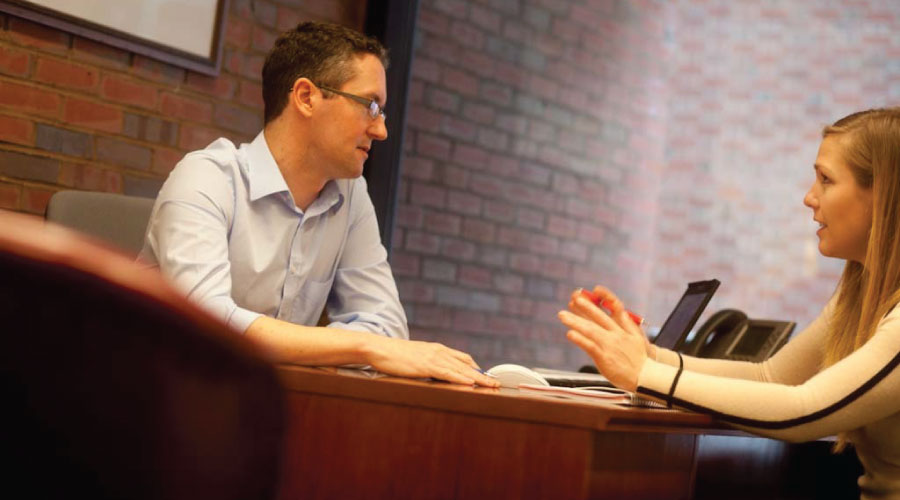 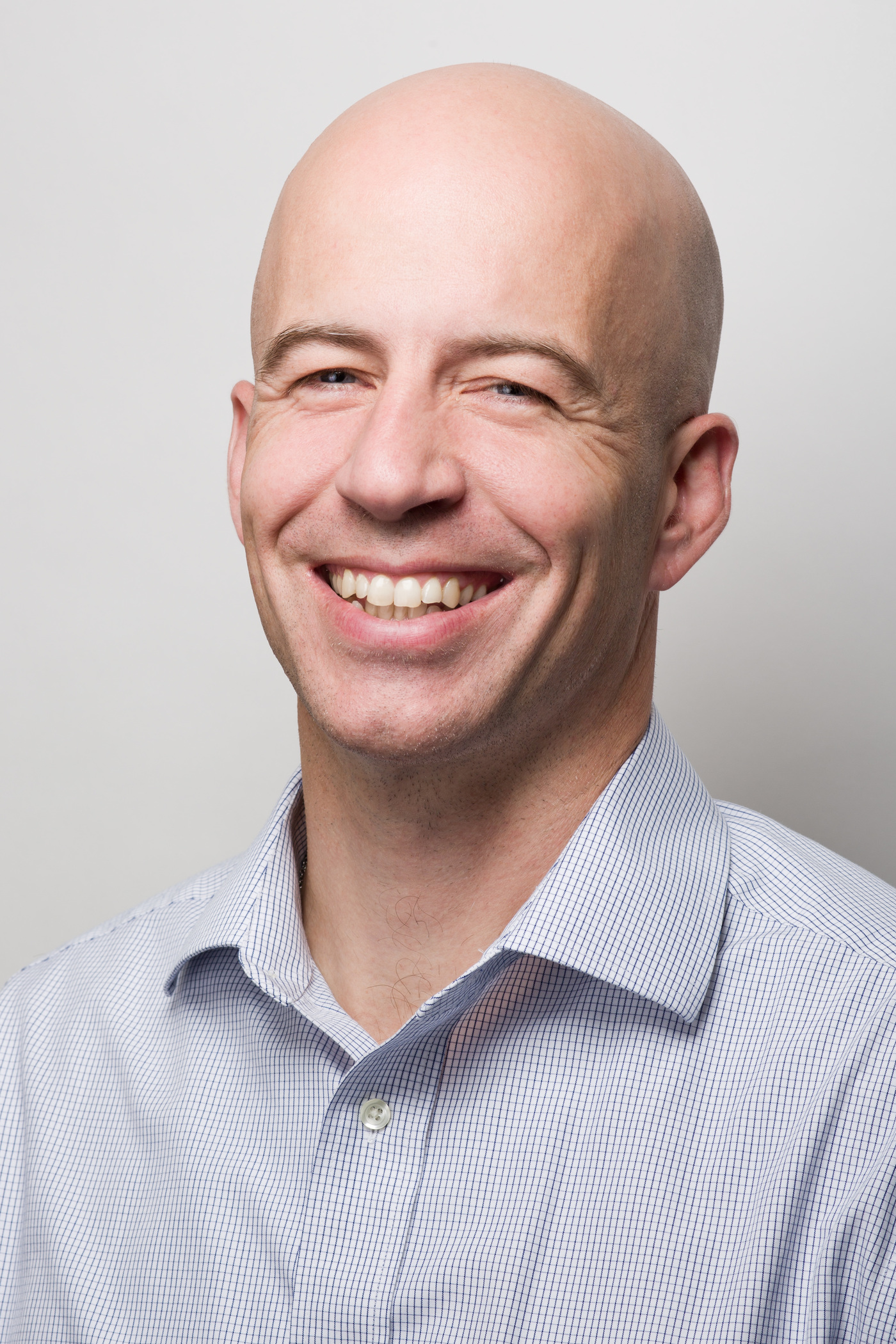  Jonathan Masland is director of Tuck’s Career Development Office (CDO). Stephen Pidgeon T’07 is an associate director of the CDO and author of the books How to Get a Job in Consulting and Case Interviews for Beginners. Question: What are the top non-traditional career paths or industries students are going into now? JM: Two come to mind right off the bat. First: earlier-stage technology companies—think the Facebooks from five years ago. Second: luxury and consumer goods with new business models. A big area now is rethinking how people purchase traditional items online, like Warby Parker for eyeglasses or Harry’s for shaving. SP: Healthcare is big at the moment, too. People are very aware it’s one of the big societal problems facing the US, and I see a lot of students who say they want to put their MBA skills to helping solve it. That could be everything from managing a hospital group to working at company like CVS that’s reimagining the way that people get healthcare to joining a startup based around some exciting new science, device, or therapy. JM: We’re also seeing more people look at energy broadly, like with companies touching sustainability, like Opower and EnerNOC, or new ways of creating power with companies like Ogin or Bloom Energy. Also, we’ve seen real estate come back into vogue after the huge bust. SP: An emerging theme among our alumni is how they are revolutionizing industries with their MBA skills that haven’t traditionally made use of them, especially when it comes to analytics. The professional sports and entertainment industries are great examples. It’s no longer a grizzled manager or a cigar-smoking mogul going on gut feelings anymore—analytics and data drive success now. JM: Whatever new paths they’re exploring, it’s really inspiring to see so many alumni excited about having an impact on all kinds of industries. Good luck and happy trailblazing! Question: What habits can help a student successfully switch careers? SP: Start by learning what else is out there. It’s easy to get so overwhelmed—in a good way—by the volume of opportunities available to Tuck grads that you don’t bother to look beyond them. But if you’re looking to switch careers or try something new, why not take advantage of the incredible network of alumni, staff, friends, and classmates you’ve got here at Tuck? JM: That’s a great point. All of your activities as an MBA can support your switch to a new career, including participating in case competitions; crafting independent studies and experiential learning projects focused on the career you want to join; and talking to all the alumni and recruiters you can, both here at Tuck and on career treks. SP: Once you’ve decided to switch careers, tell everyone. Even if speakers or companies or alumni can’t immediately help you, you never know when they’ll spot an opening or meet someone at a conference and they’ll remember the student who wanted to do that particular thing and reach out to you. Don’t be shy about what your goals are. JM: You can also learn so much from alumni and others who’ve successfully made the switch you’re attempting. Reach out to people with similar backgrounds and see how they did it and what they can teach you. SP: It’s important, too, that you have a good understanding of what it will take for you to get where you want. Just because it may not be a one-step process doesn’t mean it’s impossible. The sooner you map out what you need to do, the sooner you can start planning and positioning yourself. JM: Treat this transition as a long-term switch you’re committed to, not just something you’re trying out. If you are making a significant switch, the more focus, time, knowledge, and resources you can dedicate to this new career, the better off you’ll be. Good luck and happy career-switching! (Photo above by Laura DeCapua.) |



|
|
||
|
Hi Guest,
Here are updates for you:
ANNOUNCEMENTS
Tuck at Dartmouth
|